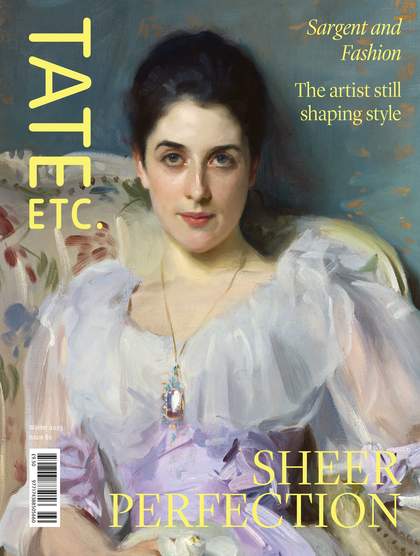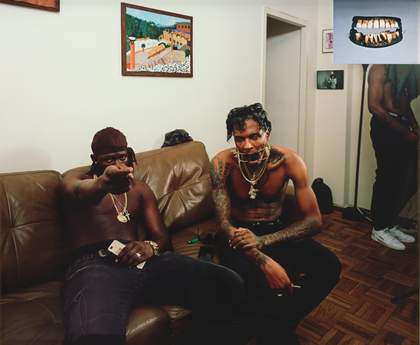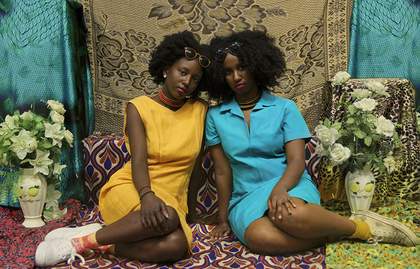For over 20 years, the artist Deana Lawson has been engaged in the sensuous and complex depiction of Black life through the photographic portrait. Working predominantly with an old analogue view camera, Lawson has, over the course of her career, generated a tapestry of rich images, blending fact and fabulation into a colourful weave of formal portraiture that is concerned with the individual, familial, sexual and social registers of Black life.
While Lawson often photographs individuals whom she has encountered in the everyday course of their lives, she also casts couples and selects locations within which to stage her vivid scenes of Black domesticity and sociality, frequently picturing her sitters in states of undress or nudity that are expressly theatrical. The formality of these portraits constitutes the basis of our invitation into the scene but not into the lives of the people that she portrays: we are permitted to enter, but we are not invited to stay. Rather, through Lawson’s portraits, we are witness to a performance that redrafts the parameters of the real.
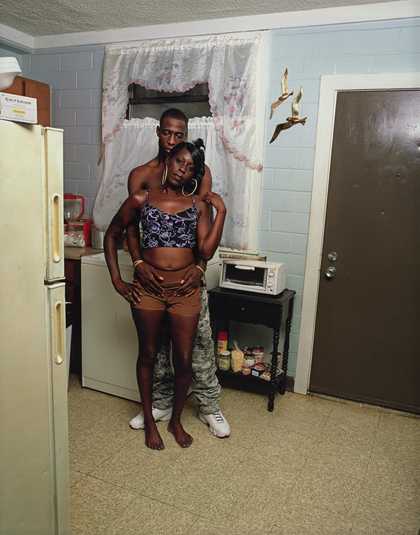
Deana Lawson
Seagulls in Kitchen (2017)
Lent by the Tate Americas Foundation, courtesy of the North American Acquisitions Committee 2019
The works now on display at Tate Modern, including Nation 2018, Baby Sleep 2009 and the more recent Ms. Bell at Home 2021, are, as with so many of Lawson’s portraits, more indebted to performance than they are to any photojournalistic standard of candour. Her images are better read as stages than windows.
Since Blackness continues to be predictive of disproportionate death and suffering, and since that loss and suffering falls disproportionately on the shoulders of Black women, the question of sustain- ing Black life is necessarily historical and political. Lawson’s portraits – of sitters pregnant, nude or oth- erwise – also locate Black feminine subjectivity, and its attendant labours, at the heart of Black social life. The selection of works that follow evidence the art- ist’s indifference to a politics of civility or uplift as she pictures Black women revelling in their corpore- ity and refusing – even if only photographically – the limiting prescriptions imposed upon them by a world which they sustain but cannot enjoy as equals.
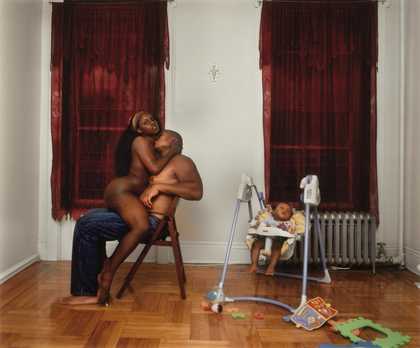
Deana Lawson
Baby Sleep (2009)
Lent by the Tate Americas Foundation, courtesy of the North American Acquisitions Committee 2019
Nation, Seagulls in Kitchen and Baby Sleep are lent by the Tate Americas Foundation, courtesy of the North American Acquisitions Committee 2019 and are on display at Tate Modern.
Stanley Wolukau-Wanambwa is a photographer, writer and editor. Recent publications include Indeterminacy, Dark Mirrors and Hiding in Plain Sight. This text was adapted from a version published in Dark Mirrors (MACK, 2021)

